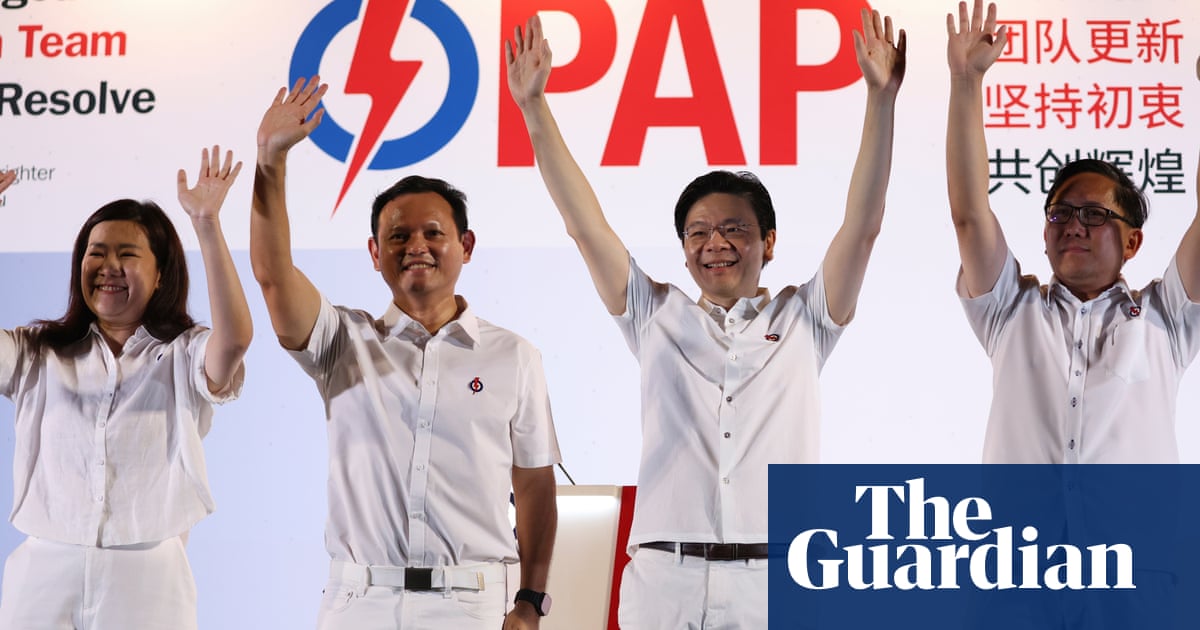Singapore recently held its general elections, resulting in a notable victory for the ruling People’s Action Party (PAP). Prime Minister Lawrence Wong secured a clear mandate from voters, as the PAP achieved a majority in the 97-seat parliament.

With early results indicating the PAP winning 49 seats, Wong expressed his gratitude to supporters, emphasizing a commitment to honor the voters’ trust. This victory marks Wong’s first significant test as prime minister, following his predecessor, Lee Hsien Loong, who led Singapore since its separation from Malaysia in 1965.
Wong has been recognized for his leadership during the COVID-19 pandemic, which bolstered his popularity. As Singapore faces global economic uncertainties, especially due to tariffs proposed by the U.S., Wong has called for a strong support base to navigate these challenges. He warned that these tariffs could impact the nation, necessitating a competitive economic stance.
Political analyst PN Balji noted that the combined campaigning efforts of Wong and Lee likely influenced voter sentiment, especially around the economic concerns linked to U.S. policies.
Despite its long history of dominance, the PAP is facing a more vocal electorate. Young voters are particularly interested in alternative voices. Feedback from the public shows a growing enthusiasm for new candidates across the political landscape. One voter mentioned appreciating the “refreshing and exciting” presence of these candidates, even if they didn’t win.
In recent years, the PAP’s reputation has been tested by internal controversies. A high-profile corruption scandal involving former transport minister S. Iswaran led to his arrest, and there have been public resignations related to personal misconduct. Furthermore, tensions within the Lee family have sparked headlines, particularly a dispute between Lee Hsien Loong and his brother Lee Hsien Yang regarding the family estate.
Historically, Singapore’s political environment has seen opposition parties struggle to gain significant ground. In the 2020 elections, the Workers’ Party made a remarkable leap, increasing its seats from four to ten. This time, they campaigned vigorously on issues such as the rising cost of living, advocating for more opposition representation to limit the PAP’s power.
The PAP countered these claims by highlighting the substantial support they provided to citizens, including cash assistance and grocery vouchers to help with the increasing cost of living.
As political engagement rises and younger voters push for change, Singapore’s future political landscape may see more dynamic shifts. This growing interest in diverse political voices could reshape governance in the city-state, inviting a more participatory democracy.
For a detailed look at Singapore’s political history and upcoming trends, you can refer to the Ministry of Communications and Information’s insights on Singapore’s political evolution here.
In summary, while the PAP remains dominant, shifts in voter attitudes and increased interest in opposition candidates signal potential changes on the horizon for Singaporean politics.
Check out this related article: Exciting News: Army to Celebrate 250th Anniversary with Spectacular Military Parade on Trump’s Birthday!
Source link





















